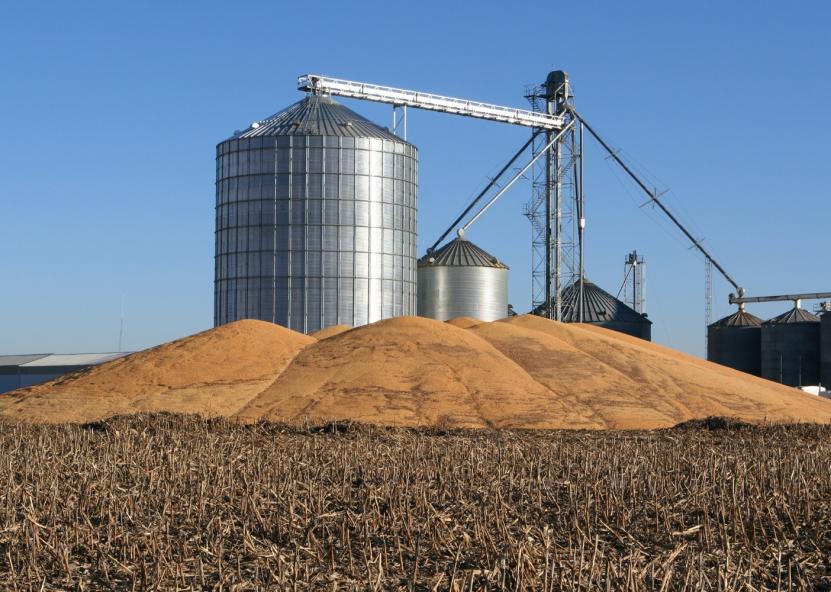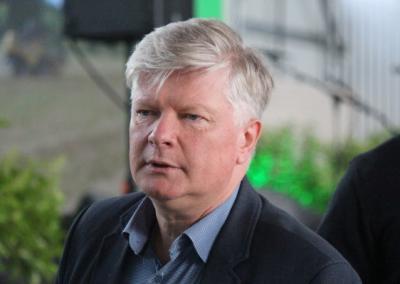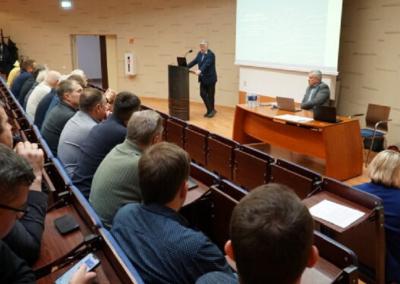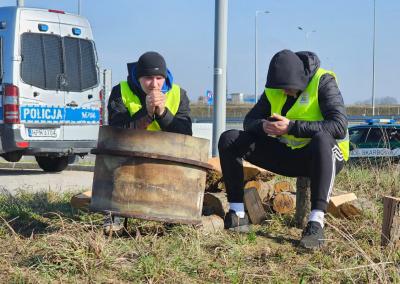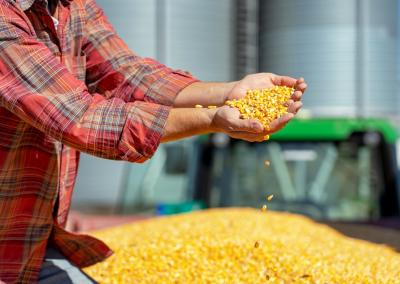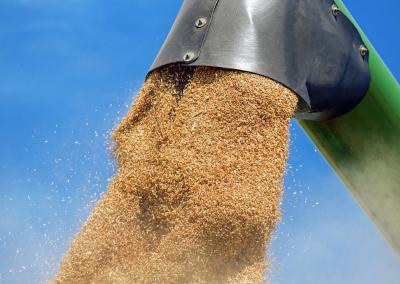K. Navickas: we will check with the Poles the quantities of grain shipped from Ukraine
Lithuanian farmers are planning to block a road on the Lithuanian-Polish border for a week, Lithuanian Agriculture Minister Kęstutis Navickas says the farmers' actions must be taken seriously. He also said that he and the Poles want to check whether the amount of grain transported from Ukraine to Lithuania via Poland is the same as that transported from Ukraine to Lithuania.
„Taking it seriously, we agreed two things yesterday with the Polish minister – we now have a direct channel to exchange what is happening, and the other is – we will additionally get help with the Ukrainian-Polish border numbers, how much is declared to Lithuania and check with our data“, – K. Navickas told LRT radio on Tuesday.
That is why, he said, suspicions that Ukrainian grain brought to Lithuania from Poland is being returned or processed and shipped back to Lithuania as Lithuanian grain seem to be unfounded.
„Narrowing the whole subject down to the grain carousel, what is Lithuania being accused of – by the way, – the same accusation is also being levelled at Germany, and then the question arises a little bit, – is it – is it – is it – is it – on the one hand, if it is or would be part of smuggling, in any case, it is an illegal act, that would be the signs and neither we nor the Polish side can see those signs," the minister said.
K. Navickas added that smuggling – that is, by falsifying documents – is not profitable: the risk is high and the volume/price ratio is low.
„It is necessary to have a sober mind and to smuggle cargo that is relatively cheap in volume ratio, because the risk, let's compare it with cigarettes, is disproportionately high, because the penalties for organising smuggling are enormous and the carrier, if he is already taking a risk, must know what he is risking“, – said the Minister.
„Economic logic should not be looked for in this, the emotional field is not favourable“, – he added.
K. Navickas also pointed out that since the beginning of the war in Ukraine, some of Russia's agricultural products have been replaced by Ukrainian ones, so it is easy to see that more Ukrainian transporters are passing through the country.
„The fact that there is a Ukrainian haulier does not mean that he is here illegally, there is no need to add that element. Išku that there is an increased flow of Ukrainian cargo and the same grain since the invasion, because the conditions have changed in the first place," Navickas said.„In the past, they used to transport goods by rail and take them from Belarus, Russia or from Ukraine through Belarus, but now that corridor is closed, it is not functional, so the alternative is roads“, – – – he said.
Thadas Povilauskas, an economist at the IEB Bank, also said that imports from Ukraine increased but those from Russia decreased: „It's a question of do we want maize from Russia or do we want maize from Ukraine .
T. According to Povilauskas, Ukrainian grain shipped to Lithuania accounts for less than 1% of Lithuania's wheat harvest.
„We can calculate – at least four wheat trucks cross Lithuania, aštuoni – of corn, it is normal that it is present and visible, but it is 30 thousand tons of wheat from the Lithuanian harvest, consumption and export – this is less than a percentage of the total volume, small numbers“, – the economist told LRT radio on Tuesday.
The blockade is expected to last about a week.Last Tuesday, Polish farmers launched a new wave of protests – blocked some 100 roads leading to the border with Ukraine and illegally opened two Ukrainian freight rail wagons at the border crossing in Medyka.



































































































